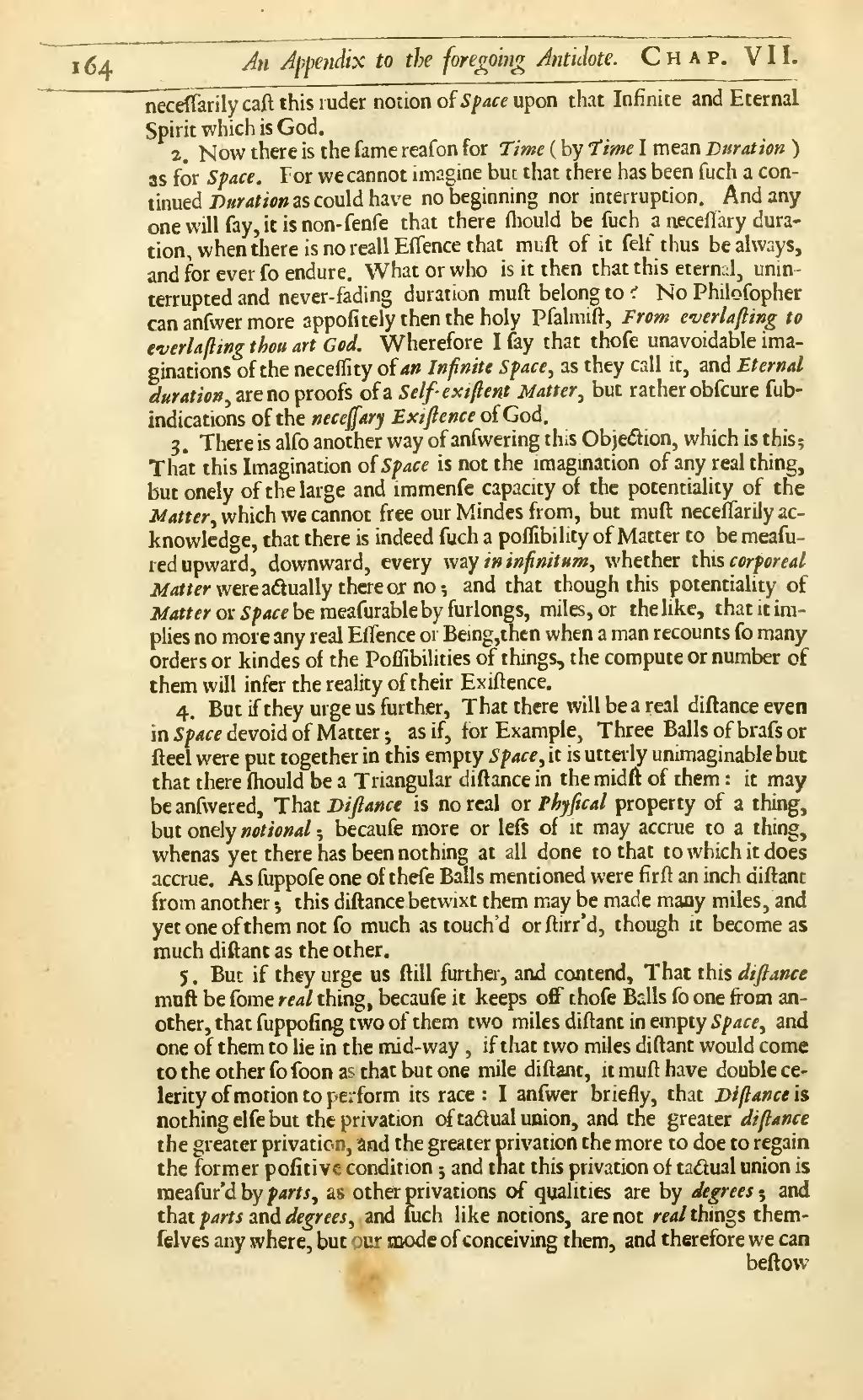necessarily cast this ruder notion of Space upon that Infinite and Eternal Spirit which is God.
2. Now there is the same reason for Time (by Time I mean Duration) as for Space. For we cannot imagine but that there has been such a continued Duration as could have no beginning nor interruption. And any one will say, it is non-sense that there should be such a necessary duration, when there is no reall Essence that must of it self thus be always, and for ever so endure. What or who is it then that this eternal, uninterrupted and never-fading duration must belong to? No Philosopher can answer more appositely then the holy Psalmist, From everlasting to everlasting thou art God. Wherefore I say that those unavoidable imaginations of the necessity of an Infinite Space, as they call it, and Eternal duration are no proofs of a Self-existent Matter, but rather obscure sub-indications of the necessary Existence of God.
3. There is also another way of answering this Objection, which is this; That this Imagination of Space is not the imagination of any real thing, but onely of the large and immense capacity of the potentiality of the Matter, which we cannot free our Mindes from, but must necessarily acknowledge, that there is indeed such a possibility of Matter to be measured upward, downward, every way in infinitum, whether this corporeal Matter were actually there or no; and that though this potentiality of Matter or Space be measurable by furlongs, miles, or the like, that it implies no more any real Essence or Being, then when a man recounts so many orders or kindes of the Possibilities of things, the compute or number of them will infer the reality of their Existence.
4. But if they urge us further, That there will be a real distance even in Space devoid of Matter; as if, for Example, Three Balls of brass or steel were put together in this empty Space, it is utterly unimaginable but that there should be a Triangular distance in the midst of them: it may be answered. That Distance is no real or Physical property of a thing, but onely notional, because more or less of it may accrue to a thing, whenas yet there has been nothing at all done to that to which it does accrue. As suppose one of these Balls mentioned were first an inch distant from another; this distance betwixt them may be made many miles, and yet one of them not so much as touch'd or stirr'd, though it become as much distant as the other.
5. But if they urge us still further, and contend, That this distance must be some real thing, because it keeps off those Balls so one from another, that supposing two of them two miles distant in empty Space, and one of them to lie in the mid-way, if that two miles distant would come to the other so soon as that but one mile distant, it must have double celerity of motion to perform its race: I answer briefly, that Distance is nothing else but the privation of tactual union, and the greater distance the greater privation, and the greater privation the more to doe to regain the former positive condition; and that this privation of tactual union is maeasur'd by parts, as other privations of qualities are by degrees; and that parts and degrees, and such like notions, are not real things themselves any where, but our mode of conceiving them, and therefore we can
